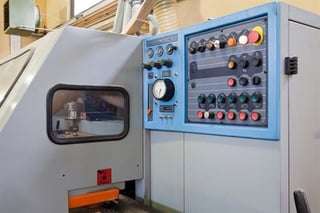
We've all had it happen. Sitting abandoned in a random corner of your facility was a piece of equipment that was worth some serious money, but you didn't realize its value at the time. Alternately, you held on to equipment on the incorrect assumption that it was worth a lot, just to find out that because it was taking up vital production floor space, it's actually been costing you money to keep it. How do you figure out which equipment you should keep and which you should get rid of? It's all part of why understanding fair market value of your equipment is so important. Here are some basics to get you started.
It's worth what? Why understanding fair market value is vital to your company's bottom line
What effect does fair market value have on your business? Why is it important to get an equipment appraisal to know exactly what your equipment is worth? There are a number of reasons for having an equipment valuation specialist perform an appraisal to determine your equipment values. You could be considering selling or donating equipment and need to know what it is worth for a tax deduction. Maybe you've had a fire or disaster at your business that has destroyed some equipment and you need to make an insurance claim. A tax assessor could have made an appraisal that you're not sure is accurate and may cost you more in property taxes than the equipment is actually worth. How do you determine the fair market value of your equipment to ensure you have an accurate picture of what your machinery is worth?
But why can't you just use your tax documents for these purposes? The value of your machinery in your tax documents is often very inaccurate. A standard depreciation table takes your original machinery cost and removes value over a set period of time. If your equipment happens to fall within that particular time period and becomes unusable or without value at the end of that depreciation period, a standard depreciation table works.
However, when your machinery is used hard and fails before the end of the depreciation period, it will show value that is in excess of what your equipment is actually worth. And almost every business has ancient machinery that still provides reliable service, even though it has been fully depreciated for years, providing value that may not appear on your tax documents.
You could also get an informal equipment appraisals from an equipment dealer, but you need to keep in mind the viewpoint of the dealer. They're there to make money selling equipment, not performing appraisals. They may undervalue your machinery to try to convince you that it doesn't have much value or they may overvalue it to encourage you to use it as a trade in on new machinery. Neither of these situations will provide you with an accurate machine value.
By keeping track of your business' assets and understanding fair market value and its impact on your business, you can ensure that you're holding onto only the equipment that boosts your company's bottom line instead of causing problems down the road. But how do you determine the fair market value of your equipment and track it as situations change? A qualified equipment appraiser can go a lot way to helping you through the process.

